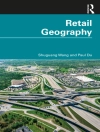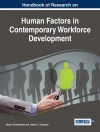F. A. Hayek, a prominent 20th-century political economist in the Austrian tradition,
won the Nobel Prize in Economics in 1974 for his pioneering work on the theory of
money and economic fluctuations and on comparative institutional analysis. Hayek’s
research highlights the importance and dispersed nature of knowledge, advancing
an interdisciplinary approach to understanding human behavior. Like any great and
productive scholar, he left behind a body of work that includes tensions, flaws, and
inconsistencies that must be confronted by scholars looking to engage, critique, and
advance his distinctive project in political economy.
Hayek’s work is important but also open for contestation and improvement. Hayek’s
Tensions: Reexamining the Political Economy and Philosophy of F. A. Hayek presents
a critical assessment of Hayek’s research and ideas and identifies sources of tension
within his writing. The contributions to this edited volume include original chapters by
eminent scholars of complexity theory, of Austrian economics, and of Hayek himself.
The book’s key takeaway is that the research program Hayek developed continues as
an open-ended project, both as a social-scientific approach and as a classical liberal
vision of a free society, rather than as a static dogma or set of theories from a bygone
era. Taken as a whole, this volume identifies important questions and areas for future
research by the next generation of political economists.
Tabela de Conteúdo
Introduction
Stefanie Haeffele, Solomon M. Stein, and Virgil Henry Storr
Chapter 1: Hayek and the Hayekians on the Political Order of a Free People
Peter J. Boettke and M. Scott King
Chapter 2: Hayek’s Plan-based Political Economy Project
Peter Lewin
Chapter 3: Hayek’s Evolving Views on the Gold Standard
Lawrence H. White
Chapter 4: Tensions and Ambiguities in Hayek’s Social Theory: Ontology, Methodology, Substantive Claims, and Self-description
Paul Lewis
Chapter 5: Why Are There No Hayekian Critics of Consumerism? Going beyond Hayek’s ‘Non Sequitur of the ‘Dependence Effect” in Light of Lachmann, Douglas, Fromm, and Maslow
David L. Prychitko
Chapter 6: Updating Hayek on Cultural Multilevel Selection
David Sloan Wilson
Chapter 7: The Courage to be Utopian: Developing a Progressive Hayekian Economic Policy Agenda
David Colander
About the Contributors
Index
Sobre o autor
Virgil Henry Storr is associate professor of economics at George Mason University and Don C. Lavoie Senior Fellow with the F. A. Hayek Program for Advanced Study in Philosophy, Politics, and Economics at the Mercatus Center at George Mason University.










